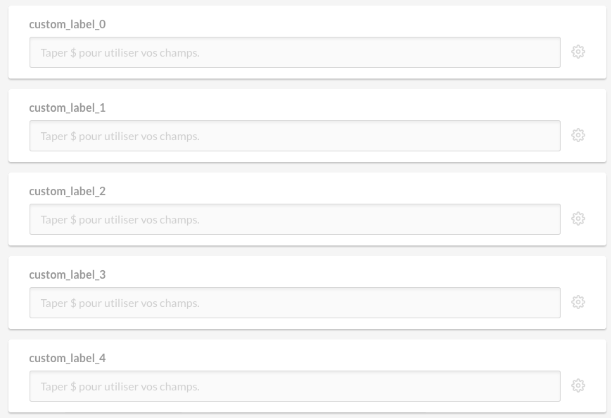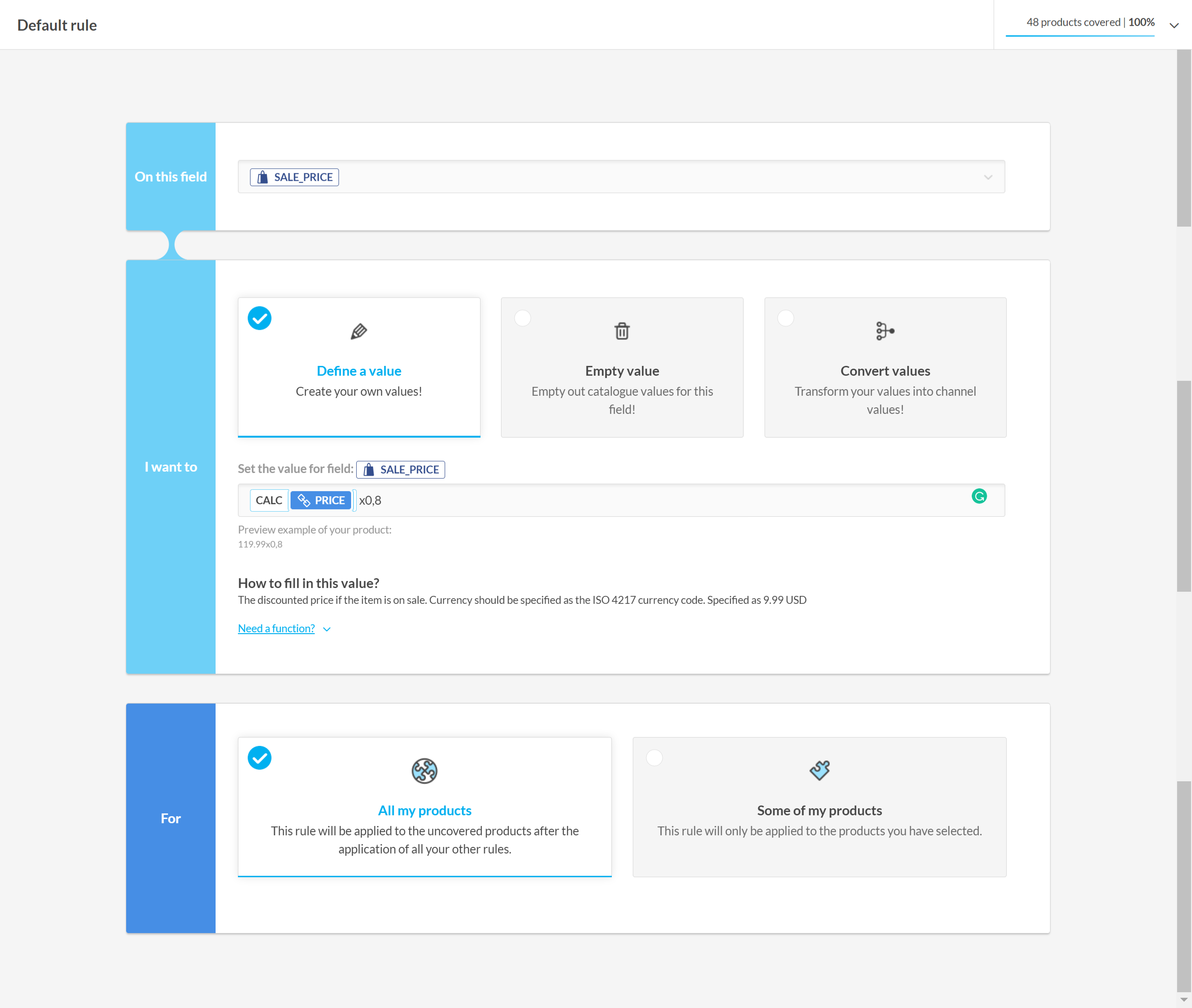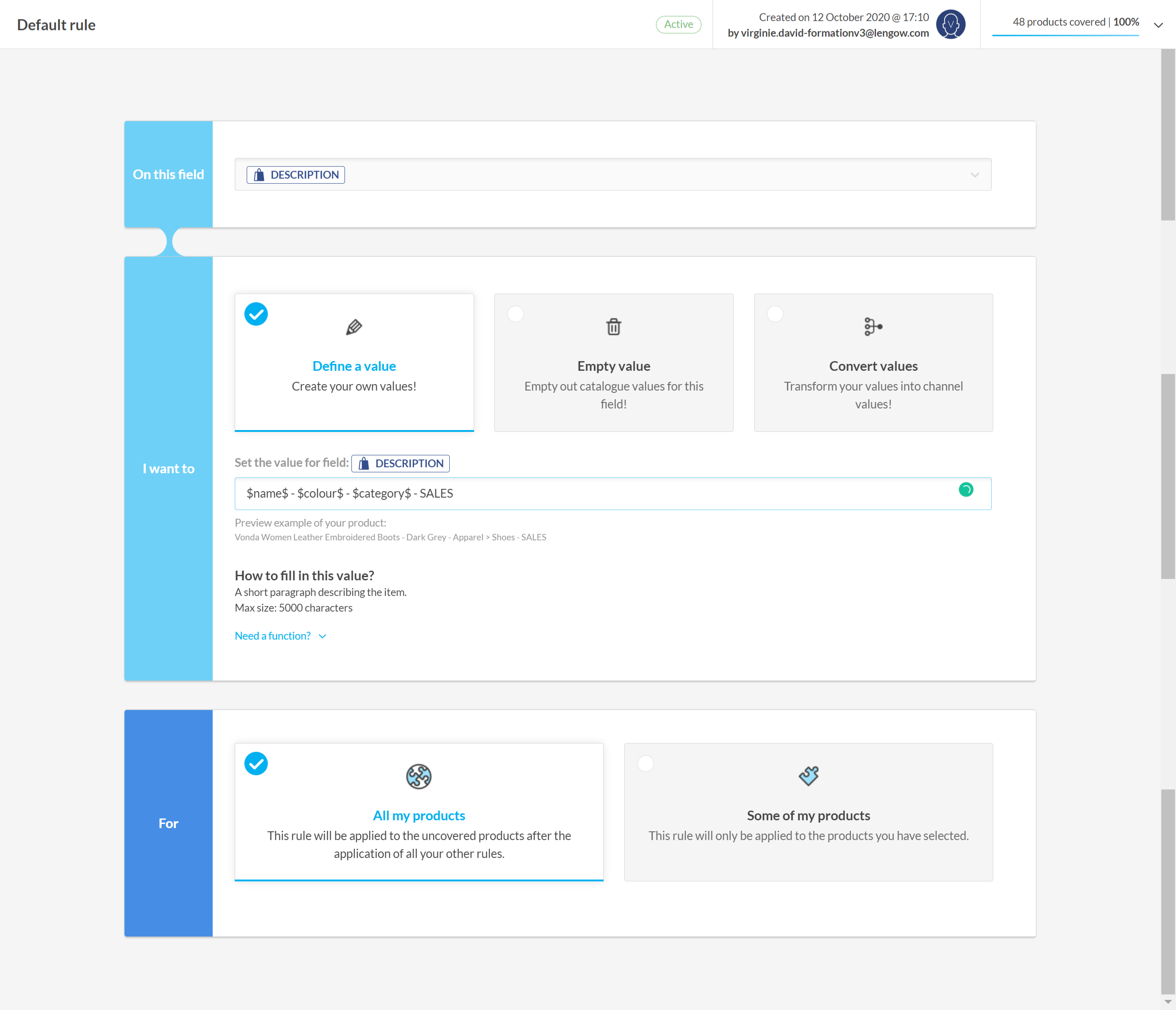Black Friday and Christmas: Six steps to win the marketing battle in 2023
18/09/23
11'
Today’s consumers enjoy near-endless opportunities for discovery and research before making a purchase. For example, 74% of people use Facebook to discover brands or products, 43% use Google to find information and compare products, and 70% use Instagram to research their next purchase.
As those large numbers make clear, shoppers use many more than one ‘favourite’ source. Even for events such as Amazon’s Prime Day, shoppers turned to social media to discover the best deals, rather than trying to find them on Amazon itself: in the US, videos tagged #primeday2023 were viewed 400 million times in 48 hours, compared with 200 million in 2022. Eighty-seven per cent of Generation Z, in particular, expects to be inspired by social media for holiday season gifts.
To brands and retailers, these marketing channels represent a clear and obvious opportunity, especially for the busy end-of-year period – but it comes with less-clear and less obviously-answered challenges:
- How to stand out from the competition and increase visibility
- How to reach new clients?
- How to test new marketing channels?
- How to offer an optimised customer experience regardless of the channel?
- How to improve KPIs while managing acquisition costs growth and limited budgets?
Read on for our six-step plan for addressing those challenges and maximising the results of your efforts and budgets.
Summary

Step 1: Determine which items will be on special offer
First, examine your catalogue and select which of your products to promote for sale.
Use data from recent months (or from past holiday seasons) to determine which products to promote for sale; Google Analytics is a great tool for this.
Give careful thought to stock levels: you need to be confident of having enough stock in order to avoid disappointing shoppers.
Our tips for success:
Connect your Google Analytics account in Lengow and retrieve data directly from your catalogue, showing:
- performance of your products: the number of sales, income
- buying behaviour: the number of views, the conversion rate
Use Lengow to segment your catalogue and create appropriate ‘rules’. For example:
- reduce the prices of poorly selling goods; or
- choose to boost the visibility of your best-sellers.

Step 2: Select the most relevant marketing channels
Google Shopping, SEA, comparison sites, social ads, retargeting… there are a lot of marketing channels and options available to you. Your challenge is to identify and select the most relevant channels – those that maximise the visibility of your products.
Some selections will be more obvious than others. For example: fashion, decoration or food products are valued on visual networks such as Instagram or Pinterest. For more technical products, or for B2B products, you may prefer to use Facebook.
You may sell multiple different categories of products, so you may need to choose multiple cohorts of channels for your different categories of products (see also Step 3).
Our tip for success:
- Choose from Lengow’s massive choice of over 1,600 marketing channels!

Don’t ignore retargeting
Retargeting is a really good lever to increase your sales. During intense sales periods such as Black Friday or Christmas, prospects tend to visit several sites at the same time, fill several shopping carts and then move on, so you need to re-engage your audiences exposed to your e-commerce site.
Use Google Shopping remarketing lists (RLSA) to target your ads to your audiences. Increase your bids during your sales period in order to prevent this audience from being hijacked by more attractive bids from your competitors.
Our tip for success:
Choose from hundreds of Lengow retargeting channels: Google, Facebook, Criteo, and many, many more.
Prepare a Google Shopping repricing campaign
Making sure your products will always have the best prices in a comparison website such as Google Shopping is a challenge and time-consuming. To optimise your sales strategy, use a repricing solution to automate the process of calculating pricing.
To prepare your Google Shopping repricing campaign:
- define the pricing rules for products your competitors are also selling
- select the specific rules that apply only to certain attributes such as brand, product type, tag, or similar
- select rules that prohibit the program from applying your rules to certain products
The repricing solution will take all parameters into account and automatically set your product prices.

Step 3: Segment your cohorts
There’s no need to present all your products on all your chosen marketing channels; create well–defined cohorts of products to promote on carefully selected marketing channels. Note that the most-clicked product is not always the one that brings you the most money!
Use data to drive decisions and maintain control
Complement advertising data such as clicks and impressions with business data such as margin and turnover to optimise your advertising activity.
Our tips for success:
Import and use your business data (stock, seasonality, margin rate) as decision-making criteria in your catalogue, through Lengow’s Additional Sources functionality.
Use these data in conjunction with the Lengow platform’s segmentation or Custom Labels functionality to execute your marketing channels strategy. For example: promote more profitable products/cut promotion of low-profit products
Segment your campaigns with Custom Labels
To meet the needs of your strategy and the reality of your catalogue, divide your catalogue into up to five cohorts, thanks to the Custom labels. Used by Google, Facebook, Instagram, Pinterest and TikTok, this means grouping products together and setting specific bids for each product group. For example: for sales and promotions, create a “custom label” (which would be “Discount Sale” in this example).
Our tips for success
- create labels directly from Lengow platform, using the feed you’re sending to the channel.
- use Custom Label fields in Lengow, numbered from 0 to 4


Step 4: Prepare the required settings for your selected channels
Each marketing channel has its own rules and requirements, which you need to check for those you’ve chosen. Find out what they expect from you; some channels require data well in advance of a specific sales operation, such as Black Friday or Christmas. By way of example, Google advises at least seven days before the operation starts.
Our tips for success:
Lengor provides assistance with this:
- consult the guides dedicated to sales in our Helpcenter
- set up catalogue update frequencies
- you will receive newsletters and information into your mailbox, from publishers and from Lengow
Focus on price
This is one of the most important fields that you will have to set up. In general, you should fill in these fields:
- sale_price: your price you’re offering during the sales/promotion period
- price: the price at which you offered the product before the sales/promotion period
While preparing in advance, fill in this field, too, so that your reduced prices won’t be displayed immediately: salePriceEffectiveDate; this is the time period during which sales will apply. The format is: “2018-06-27T08:00-0200/2018-08-07T23:00-0200” and it’s used by many marketing channels including Pinterest and Google Shopping.
Our tips for success:
Most likely, not all your products will be discounted, so you need to set the discounted prices to be displayed correctly on your marketing channels (and to distinguish them from non-discounted prices):
- if you’ve already set the discounted prices in your catalogue, follow the instructions for the sales configuration in the guides dedicated to sales in our Helpcenter.
- but, if you haven’t, the Lengow platform provides two options to help you:
- add discounted prices to your main catalogue, by importing a specific file into Lengow via our Additional Sources feature
- create the “sale_price” field directly from your “price” field, by setting up rules within the Lengow platform. For example: use our CALC function to set up a 20% discount from your product price before the sales period


Step 5: Prepare consistent, fully updated product sheets
On your campaigns:
Promote products in an impactful way. Use:
- content optimisation (titles and description) to ensure you’re being clear and coherent, in line with your brand.
Our tip for success here: Use Lengow’s rules to extend existing content and make it more complete. For example, a description can be filled-out with : $NAME$ – $COULEUR$ – $TAIL – $COMPOSITION$ or even with alternating catalogue content, raw content, HTML formatting tags: $NAME$ <p> Colour: $COULEUR$, Sales, etc.

- offers displayed: Personalise products and prices in the function of the promotion. For example, add the name of the commercial operation in the title of your product sheet or in the description.
Our tips for success here:
- Our operating experts supplement your existing internal teams, setting up and operating channels for you, working to your campaign plans.
- Follow our webinar to find out how our Professional Services team can help you implement your e-commerce strategy and achieve operational excellence.
On your website
Ensure all information you distribute is consistent with information on your website.
Note that most marketing channels will redirect shoppers to your website, where any sale will be made, so make sure your website is set up to convert them! A well-informed product data-sheet allows browsers to imagine themselves using the item, leading to better conversions (and limiting returns).
Verify all links. Fix broken ones and eliminate out-of-stock products which will simply raise your bounce rate (something taken into account for the referencing of your site).
In summary: to increase your conversion rate, ensure your product feeds contain all and all information needed by a visitor!
Our tips for success
- Using a CMS/Saas Solution (Shopify, Magento, Salesforce Commerce Cloud) as source for your catalogue in Lengow? Completing this process will also help you to prepare your ads,
- In fact, Lengow will directly import optimised data, ensuring the product sheets on your website and your ads on marketing channels will be up-to-date and complete.

Step 6: Analyse and react as you go
During the holiday shopping season, remain alert to the performance of each product, and make adjustments regularly: manage campaign budgets based on data, according to the results of each channel, each product category, etc. React quickly:
Use the same tools as for Step 1 – i.e., the GA/Lengow integration – to dynamically integrate product performance data into your feeds, then segment campaigns and adjust budget accordingly. Once connected, use these new fields to dynamically create rules across all channels.
For example: if a product has received many clicks in the last week but has zero sales, try decreasing the price by 10%. Don’t forget to verify your website to determine any issues there.
During the holiday sales season, starting with the Black Friday, it’s also important to monitor the prices of your competitors’ products with a price intelligence solution; this helps you define your own pricing strategy and, consequently, to increase your conversion rate.
Our tip for success:
- Lengow’s new competitive intelligence solution, Netrivals, enables you to react when your competitors’ prices drop (for example). Choose to match or beat their prices (without putting your profit margin at excess risk).
- Create a Google bidding strategy to set up and lower your bids depending on price competitiveness. Allocate budget to those products for which you face the greatest competition and opportunity for success.
What does all this mean?
As a marketing or e-commerce professional working for or with a brand or retailers, you already know just how all-important the End of Year season is. And you almost certainly know that preparation is key. Are you ticking all the boxes, and doing all the right things? Is there even time?
Lengow helps you to make the time. Contact us now for more information on how we can help you win the marketing battle this Black Friday and Christmas.
Your e-commerce library
E-commerce for Retailers
Learn moreE-commerce for Brands
Learn moreL'Oréal Luxe Success Story
Learn moreSign up for our newsletter
By submitting this form you authorize Lengow to process your data for the purpose of sending you Lengow newsletters . You have the right to access, rectify and delete this data, to oppose its processing, to limit its use, to render it portable and to define the guidelines relating to its fate in the event of death. You can exercise these rights at any time by writing to dpo@lengow.com

Trending Posts
Marketing channels
Where does Gen Z shop online?
Gen Z online shopping is transforming the digital marketplace, setting trends that redefine what it means to engage with brands…
16/04/24
9'
Marketplaces
The Top 10 Marketplaces in Europe
The e-commerce scene is a vibrant mix of marketplaces in Europe. These aren't just websites; they're bustling hubs where millions…
08/12/23
7'
Marketplaces
Lengow Now Fully Supports Zalando Logistics Solutions ZSS and ZRS
Zalando, one of Europe’s leading fashion marketplaces, continues to raise the bar with its advanced logistics and fulfillment programs. After…
12/12/24
4'
Marketplaces
How to win the Buy Box on Marketplaces (Amazon, Zalando, etc.)
What is the most important thing for marketplace sellers? Exactly, the Buy Box! If you don't have the Buy Box…
02/04/24
10'
Marketplaces
How to Sell on Temu? Best Tips
Emerging under the vast umbrella of PDD Holdings Inc., Temu has skyrocketed in popularity as a shopping sensation from China…
17/08/23
5'





